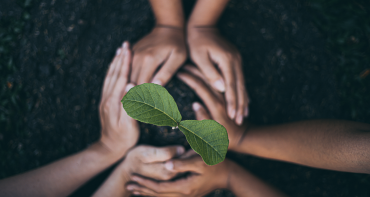With the new Sustainable Development Goals (SDGs), the time is ripe for fresh approaches to gender-responsive climate action. Most Commonwealth states are vulnerable developing countries, which are expected to be adversely affected by climate change.


With the new Sustainable Development Goals (SDGs), the time is ripe for fresh approaches to gender-responsive climate action. Most Commonwealth states are vulnerable developing countries, which are expected to be adversely affected by climate change. Women also account for at least half of the population. Advancing gender equality and tackling climate change is therefore crucial. Climate change will affect everyone, but the impacts will be disproportionate between countries, generations, genders and social classes.
Due to social norms, men and women experience climate change differently. Quite often, gender concerns have focused on issues relevant to women, but men also face specific challenges. When their rural livelihoods are undermined as a result of climatic variabilities, their anxiety and stress levels may increase when they cannot perform their socially-assigned role as ‘the provider’, thereby creating health problems. Men are also more likely to take risks during a natural disaster as society expects them to be ‘brave’ (Skinner 2011).
According to
Despite advances made, in most societies there are still significant discrepancies between the rights and opportunities afforded to men and women. A key challenge for advancing gender equality within the Commonwealth is the cultural perpetuation of patriarchy. Women often have unequal access to social, economic and political resources and therefore have the least capacity to respond in the aftermath of climate change-related hazards.
Women are often excluded from political decision-making processes. At the Fifth Meeting of the Commonwealth Ministers Responsible for Women’s Affairs, it was set out that by 2005 at least 30% of those in political decision-making positions should be women. However, only 12 Commonwealth countries reached between 20 and 30%. In Barbados for example, less than 20% of elected representatives in the House of Assembly are women. The continuous exclusion of women’s perspectives hinders Commonwealth countries from creating truly equitable solutions to sustainable development. This makes it necessary to ensure that responses to climate change are not gender-blind.
Policy-makers should focus on women as agents of change with experience, rather than focus solely on their vulnerabilities. Women can help efforts to mitigate and adapt to climate change through initiatives related to energy, deforestation, and consumption. One successful gender equality initiative started in 2000 in Bangladesh where a national solar programme was designed to improve lighting in rural communities. Thirty-five women were engaged in the operation of a micro-enterprise called the Coastal Electrification and Women’s Development Cooperative (CEWDC), in which they manufactured and sold efficient fluorescent lamps. As a result, the off-grid electrification services in Bangladesh have advanced and the CEWDC has started to provide micro-financing to rural households for solar home systems.
Moreover, gender mainstreaming adds a “human face” to the climate change phenomenon, which environmental communications specialists believe will build resilience. Mainstreaming involves assessing the pros and cons for both men and women in any planned action against climate change. By mainstreaming, Commonwealth countries have the opportunity to create gender-responsive actions in tackling climate change. Gender equality must be seen as a priority, as demonstrated by Malawi when setting their National Adaptation Programmes of Action (UNFPA and WEDO, 2009).
However, adding gender dimensions to policies through mainstreaming is not enough. Uncovering the root of the inequality is necessary. The problem is often deeply grounded in structural disparities and cultural lifestyles of patriarchy and misogyny. By considering the social norms which drive the power imbalances, policy-makers have an opportunity to tackle the underlying force which perpetuates gender inequality. Thus, gender-responsive climate policies can play a transformative role, by challenging existing power imbalances.
Climate change policies will not be effective unless they are gender-aware. It is not about making men and women the same but about providing equitable opportunities and value to both genders. Men and women have a right to be included in the decisions related to climate change, because there is no climate justice without gender justice.
Read more stories on gender from Commonwealth youth correspondents



